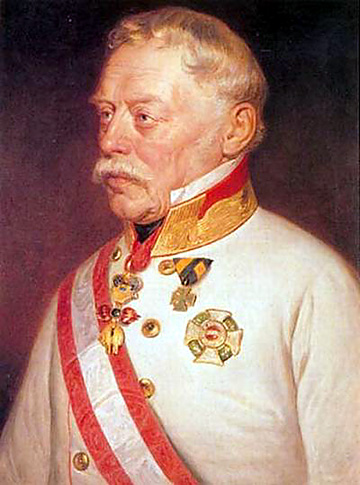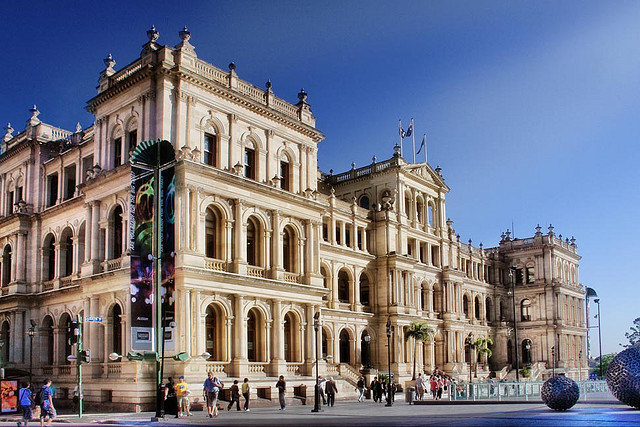|
Henrique O'Neill, 1st Viscount Of Santa Mónica
Henrique O'Neill, 1st Viscount of Santa Mónica (Lisbon, 3 August 1823 – Lisbon, 6 November 1889) was a Portuguese writer, jurist and politician. Background Henrique O'Neill was a son of José Maria O'Neill, the titular head of the Clanaboy O'Neill dynasty, whose family has been in Portugal since the 18th century, and wife Ludovina de Jesus Alves Solano. He descended from a most noble Irish family that had fled to France in the 17th century due to religious persecution and which then passed to Portugal. Career A Bachelor in Law from the University of Coimbra, he left to go to Germany soon after his graduation and there he lectured on Portuguese language at the University of Göttingen. Invited by the Minister Martins Ferrão, then Minister of Justice, to come and lead one of the branches of his Ministry, he returned to Portugal, where he initiated his career as functionary which rapidly took him to Director-General of Justice, Honorary Director-General of Justice Affairs, H ... [...More Info...] [...Related Items...] OR: [Wikipedia] [Google] [Baidu] |
Maria Pia Of Savoy
Dona Maria Pia (16 October 1847 – 5 July 1911) was by birth an Italian princess of the House of Savoy and was Queen of Portugal as spouse of King Luís I of Portugal. On the day of her baptism, Pope Pius IX, her godfather, gave her a Golden Rose. Maria Pia was married to Luís on the 6 October 1862 in Lisbon. She was the grand mistress of the Order of Saint Isabel. She was the third queen of the House of Savoy on the Portuguese throne, after Mafalda and Marie-Françoise of Savoy-Nemours. Early life Maria Pia was the youngest daughter of Victor Emmanuel II, the first King of Italy, by his wife Adelaide of Austria, a great-granddaughter of Leopold II, Holy Roman Emperor. Her sister Maria Clotilde was the "princesse Napoléon" as wife of Napoléon Joseph Charles Paul Bonaparte, and her brothers were King Umberto I of Italy and King Amadeo of Spain. She had three younger brothers, but all died prematurely. Additionally, she had four paternal half-siblings born out of wedlo ... [...More Info...] [...Related Items...] OR: [Wikipedia] [Google] [Baidu] |
Order Of The Rose
The Imperial Order of the Rose ( pt, Imperial Ordem da Rosa) was a Brazilian order of chivalry, instituted by Emperor Pedro I of Brazil on 17 October 1829 to commemorate his marriage to Amélie of Leuchtenberg. On 22 March 1890, the order was cancelled as national order by the interim government of First Brazilian Republic. Since the deposition in 1889 of the last Brazilian monarch, Emperor Pedro II, the order continues as a house order being awarded by the Heads of the House of Orleans-Braganza, pretenders to the defunct throne of Brazil. The current Brazilian Imperial Family is split into two branches Petrópolis and Vassouras, and as a consequence the Grand Mastership of the Order is disputed between those two branches. History It was designed by Jean-Baptiste Debret, who, as discussed by historians, would have been inspired by the motifs of roses that adorned Amélie's dress when landing in Rio de Janeiro, or when marrying, or in a portrait of the same envoy from Europe to t ... [...More Info...] [...Related Items...] OR: [Wikipedia] [Google] [Baidu] |
Grand Cross
Grand Cross is the highest class in many orders, and manifested in its insignia. Exceptionally, the highest class may be referred to as Grand Cordon or equivalent. In other cases, there may exist a rank even higher than Grand Cross, e.g. Grand Collar. In rare cases, the insignia itself is referred to as the "grand cross". In international relations, in many times the class of Grand Cross is typically reserved for royalty, heads of state and equivalent. Sometimes a holder of the highest class or grade are referred to as "Commander Grand Cross",) is used in the Swedish Orders of the Sword, Polar Star and Vasa and in the Finnish Orders of the White Rose and Lion., name="Ex-01", group=A "Knight Grand Cross", or just "Grand Cross". In the United Kingdom, the rank of "Knight Grand Cross" or "Dame Grand Cross" allows the recipient to continue to use the honorific "Sir" (male) or "Dame" (female) as a style before his or her name. The knighthood is initially conferred, as in other co ... [...More Info...] [...Related Items...] OR: [Wikipedia] [Google] [Baidu] |
Privy Council
A privy council is a body that advises the head of state of a state, typically, but not always, in the context of a monarchic government. The word "privy" means "private" or "secret"; thus, a privy council was originally a committee of the monarch's closest advisors to give confidential advice on state affairs. Privy councils Functioning privy councils Former or dormant privy councils See also * Privy Council of the Habsburg Netherlands * Council of State * Crown Council * Executive Council (Commonwealth countries) * Privy Council ministry * State Council State Council may refer to: Government * State Council of the Republic of Korea, the national cabinet of South Korea, headed by the President * State Council of the People's Republic of China, the national cabinet and chief administrative auth ... References {{DEFAULTSORT:Privy Council Advisory councils for heads of state Monarchy Royal and noble courts ... [...More Info...] [...Related Items...] OR: [Wikipedia] [Google] [Baidu] |
Gotthold Ephraim Lessing
Gotthold Ephraim Lessing (, ; 22 January 1729 – 15 February 1781) was a philosopher, dramatist, publicist and art critic, and a representative of the Enlightenment era. His plays and theoretical writings substantially influenced the development of German literature. He is widely considered by theatre historians to be the first dramaturg in his role at Abel Seyler's Hamburg National Theatre. Life Lessing was born in Kamenz, a small town in Saxony, to Johann Gottfried Lessing and Justine Salome Feller. His father was a Lutheran minister and wrote on theology. Young Lessing studied at the Latin School in Kamenz from 1737 to 1741. With a father who wanted his son to follow in his footsteps, Lessing next attended the Fürstenschule St. Afra in Meissen. After completing his education at St. Afra's, he enrolled at the University of Leipzig where he pursued a degree in theology, medicine, philosophy, and philology (1746–1748). It was here that his relationship with Karoline Neube ... [...More Info...] [...Related Items...] OR: [Wikipedia] [Google] [Baidu] |
António Feliciano De Castilho
António Feliciano de Castilho, 1st Viscount of Castilho (28 January 180018 June 1875) was a Portuguese writer. Life Castilho was born in Lisbon. He lost his sight at the age of six, but the devotion of his brother Augusto, and aided by a retentive memory, enabled him to go through his school and university course with success; and he acquired an almost complete mastery of the Latin language and literature. His first work of importance, the ''Cartas de Echo e Narciso'' (1821), belongs to the pseudo-classical school in which he had been brought up, but his romantic leanings became apparent in the ''Primavera'' (1822) and in ''Amor e Melancholia'' (1823), two volumes of honeyed and prolix bucolic poetry. In the poetic legends ''A noite do Castello'' (1836) and ''Ciúmes do bardo'' (1838) Castilho appeared as a full-blown Romanticist. These books exhibit the defects and qualities of all his work, in which lack of ideas and of creative imagination and an atmosphere of artificiality ... [...More Info...] [...Related Items...] OR: [Wikipedia] [Google] [Baidu] |
Alexandre Herculano
Alexandre Herculano de Carvalho e Araújo (28 March 181013 September 1877) was a Portuguese novelist and historian. Early life Herculano's family had humble origins. One of his grandfathers was a foreman stonemason in the royal employ. Herculano received his early education, comprising Latin, logic and rhetoric, at the Necessidades Monastery, and spent a year at the Royal Marine Academy studying mathematics with the intention of entering on a commercial career. In 1828 Portugal fell under the absolute rule of D. Miguel, and Herculano, becoming involved in the unsuccessful military ''pronunciamento'' of August 1831, had to leave Portugal clandestinely and take refuge in England and France. In 1832 he accompanied the Liberal expedition to Terceira Island as a volunteer, and was one of D. Pedro's famous army of 7,500 men who landed at Mindelo and occupied Porto. He took part in all the actions of the great siege, and at the same time served as a librarian in the city archives. H ... [...More Info...] [...Related Items...] OR: [Wikipedia] [Google] [Baidu] |
Treasury
A treasury is either *A government department related to finance and taxation, a finance ministry. *A place or location where treasure, such as currency or precious items are kept. These can be state or royal property, church treasure or in private ownership. The head of a treasury is typically known as a treasurer. This position may not necessarily have the final control over the actions of the treasury, particularly if they are not an elected representative. The adjective for a treasury is normally treasurial. The adjective "tresorial" can also be used, but this normally means pertaining to a ''treasurer''. History The earliest found artefacts made of silver and gold are from Lake Varna in Bulgaria dated 4250–4000 BC, the earliest of copper are dated 9000–7000 BC. The term ''treasury'' was first used in Classical times to describe the votive buildings erected to house gifts to the gods, such as the Siphnian Treasury in Delphi or many similar buildings erected in ... [...More Info...] [...Related Items...] OR: [Wikipedia] [Google] [Baidu] |
Prosecutor
A prosecutor is a legal representative of the prosecution in states with either the common law adversarial system or the Civil law (legal system), civil law inquisitorial system. The prosecution is the legal party responsible for presenting the case in a Criminal law, criminal jury trial, trial against an individual accused of breaking the law. Typically, the prosecutor represents the state or the government in the case brought against the accused person. Prosecutor as a legal professional Prosecutors are typically lawyers who possess a law degree, and are recognised as suitable legal professionals by the court in which they are acting. This may mean they have been Admission to the bar, admitted to the bar, or obtained a comparable qualification where available - such as Solicitor advocate, solicitor advocates in English law, England and Wales. They become involved in a criminal case once a suspect has been identified and Indictment, charges need to be filed. They are employe ... [...More Info...] [...Related Items...] OR: [Wikipedia] [Google] [Baidu] |



